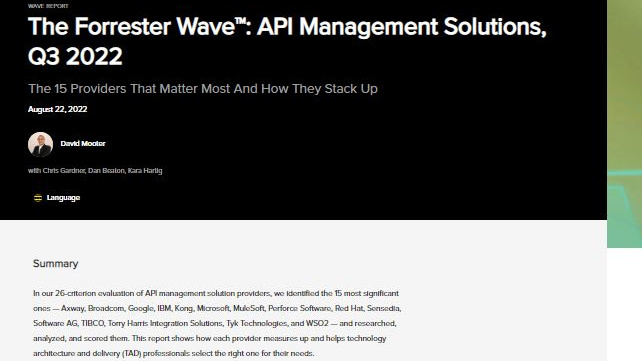Celonis: How to grow a company in the UK
Why the data processing firm decided to significantly ramp up its UK operations over the next 12 months


Founded in Germany, Celonis is a data processing company that’s been operating in the UK for six years. For the first five of these, though, the company predominantly ran a sales operation. This all changed a year ago when it picked up the pace and decided to rapidly expand its business here.
The firm, which gives businesses a real-time data-driven overview of their ongoing processes then recommends improvements to their systems, now has 60 customers and 170 UK employees, with plans to further expand over the next 12 months.
With major hubs in Spain and North America, Celonis certainly has global expansion plans, explains Nick Mitchell, its vice president and country manager in the UK and Ireland. It recently opened a Japanese office late last year, for example, while breaking into the US is also important. The UK, though, offers a unique opportunity for the company, and expansion, in the face of Brexit and other challenges, is critical to its long-term ambitions.
Why Celonis is expanding in the UK
The key reason for expanding in the UK centres around the technology market really picking up, says Mitchell. This is driving an expansion in its go-to-market operations, which means not only acquiring new customers but supporting existing customers too. Last year, for instance, the company grew its UK customer base by 250% (36 companies).
UK expansion is also in aid of the UK’s amazing talent pool, Mitchell adds. As part of its recent UK growth, the data processing company has grown its corporate functions too. Its EMEA leadership teams across its services and customer value businesses are based in the UK, alongside its head of talent acquisition and global head of culture and leadership.
Among its UK cliental, Celonis counts on those in the manufacturing sector, such as the Midlands-based Delphi Technologies. It provides its products to automotive manufacturers and processing and packaging companies too. Celonis has also broken into the utilities and retail markets in the last year, alongside claims of a burgeoning financial services influence with 11 customers in this space versus none a year ago. Lastly, it services the public sector. Despite the overall UK picture looking positive, one of Celonis’ key targets for the year ahead is to grow its presence in Ireland, as it’s currently not doing any business there whatsoever.
Keeping up with the pace of change
In 2021, Celonis raised $1 billion in funding, part of which was used to acquire Lenses.io to bring its real-time streaming data tools to the company. Mitchell says Lenses.io had a fairly big operation running out of the UK, and that all employees are now “happily engaged” with Celonis now. “I think we will continue to be acquisitive, so watch this space,” he hints.
ChannelPro Newsletter
Stay up to date with the latest Channel industry news and analysis with our twice-weekly newsletter
Celonis now plans to target more companies on the Forbes 2000 and FTSE 350 lists. In terms of the Forbes 2000 it has around 27% of those registered in the UK and Ireland on its books but there’s still a lot to go after. “The great thing about our technology is it's in every department, every process within every business within every vertical is part of our target market,” Mitchell explains. “Even when we're in a big business, a big bank or a big consumer goods or a big retail company, we have the ability to expand across finance, procurement, supply chain, front office, and manufacturing.”
The firm also plans to expand its partner ecosystem. It has signed up with many big organisations like Accenture, IBM, PwC, Deloitte, and Cognizant. They use Celonis’ technology in-house to help their business, but also in their consultant operations with their customers. “In the UK, IBM is actually putting every single graduate that joins their business through Celonis training as they come through the door,” Mitchell highlights. “So we're becoming quite an important technology in that ecosystem estate.”
Lots of jobs, not enough talent
RELATED RESOURCE

Although the company’s headquarters are in London, Celonis’ employees are actually based all over the country. The firm also pursues a remote working policy whereby 30-40% of the team are in the office at any one time. Mitchell underlines working arrangements can be very flexible.
Despite plans to double its workforce in the next two years, meanwhile, Mitchell admits the UK technology market is busy, with many vacancies but not enough skilled people. “We really need to be bringing on younger talent, educated [people], taking people straight out of education, attracting them to the technology space,” says Mitchell, “as opposed to other options that they would have, and helping them foster great careers.”
The UK is a highly competitive market, but Mitchell believes Celonis has the right formula for people to join it. It’ll hire roles in sales, such as in customer delivery and value functions, to help its expansion, while also carrying out a lot of global marketing from the UK too. It has a growing team, with much of the talent acquisition growing out of the UK to serve the rest of Europe, and other markets.
Mitchell adds the company is also working with academic institutions to excite people about the prospect of process mining and execution management – and growing that capability. It hopes this won’t only grow Celonis financially but also swell its talent pool.
Should Celonis expect a Brexit boon?
Perhaps contrary to what many might assume, Celonis has reinforced its UK operations following Brexit largely in light of the strong market. There are plenty of potential customers for Celonis to target, and, at the same time, it can grow its operations as more clients take up its product – or at least that’s the plan. Indeed, he admits Brexit is causing difficulties in the UK marketplace, especially when it comes to the skills shortage.
As for whether Brexit has caused Celonis any problems in terms of data protection laws, Mitchell says the company operates a flexible model through which customers can choose where their data is stored across the main data providers. This includes IBM and Red Hat, who the company has a strong relationship with. Customers are able to choose which data provider they prefer, and Celonis works with them to ensure they’re familiar with their security arrangements.
Along the horizon, the UK government has considered scrapping UK GDPR and replacing it with a new data protection framework. This could affect adequacy arrangements with the EU down the line, although by storing data locally, Celonis’ customers should be protected from disruption.
When it comes to other challenges, Mitchell points to Russia’s war on Ukraine, which is significantly impacting the UK market. Many UK-based companies are having to reduce operations in both countries, and are being hit in terms of revenue and personnel. “They’re having to do lots of things around that and we’re looking to support them to see how we can help make their businesses more efficient,” he explains.
Ultimately, growing an organisation’s presence in the UK is no easy feat, no matter for how long a business has planted roots in the country. If other companies are looking to establish themselves in the UK, Mitchell recommends they don’t underestimate the sophistication of competitors in the market. He also suggests ensuring companies looking to settle here have an amazing story to tell in order to attract the right talent. He underlines talent is extremely important, as businesses ultimately need to persuade the most talented workers to lend them their skills and knowledge.
Zach Marzouk is a former ITPro, CloudPro, and ChannelPro staff writer, covering topics like security, privacy, worker rights, and startups, primarily in the Asia Pacific and the US regions. Zach joined ITPro in 2017 where he was introduced to the world of B2B technology as a junior staff writer, before he returned to Argentina in 2018, working in communications and as a copywriter. In 2021, he made his way back to ITPro as a staff writer during the pandemic, before joining the world of freelance in 2022.
-
 Should AI PCs be part of your next hardware refresh?
Should AI PCs be part of your next hardware refresh?AI PCs are fast becoming a business staple and a surefire way to future-proof your business
By Bobby Hellard Published
-
 Westcon-Comstor and Vectra AI launch brace of new channel initiatives
Westcon-Comstor and Vectra AI launch brace of new channel initiativesNews Westcon-Comstor and Vectra AI have announced the launch of two new channel growth initiatives focused on the managed security service provider (MSSP) space and AWS Marketplace.
By Daniel Todd Published
-
 Optimise CX and accelerate business growth through your voice network
Optimise CX and accelerate business growth through your voice networkwhitepaper Protecting the human experience in a digital world
By ITPro Published
-
 Enterprises are doubling down on IT optimization strategies – and it’s delivering huge financial returns
Enterprises are doubling down on IT optimization strategies – and it’s delivering huge financial returnsNews Organizations that have cracked IT cost optimization and innovation reap the rewards both financially and in terms of time to market.
By Emma Woollacott Published
-
 IDC InfoBrief: Sustainability doesn’t need to be all stick and no carrot
IDC InfoBrief: Sustainability doesn’t need to be all stick and no carrotwhitepaper CIOs are facing two conflicting strategic imperatives
By ITPro Published
-
 How to empower employees to accelerate emissions reduction
How to empower employees to accelerate emissions reductionin depth With ICT accounting for as much as 3% of global carbon emissions, the same as aviation, the industry needs to increase emissions reduction
By Fleur Doidge Published
-
 Worldwide IT spending to grow 4.3% in 2023, with no significant AI impact
Worldwide IT spending to grow 4.3% in 2023, with no significant AI impactNews Spending patterns have changed as companies take an inward focus
By Rory Bathgate Published
-
 Report: Female tech workers disproportionately affected by industry layoffs
Report: Female tech workers disproportionately affected by industry layoffsNews Layoffs continue to strike companies throughout the tech industry, with data showing females in both the UK and US are bearing the brunt of them more so than males
By Ross Kelly Published
-
 The Forrester Wave™: API management solutions
The Forrester Wave™: API management solutionsWhitepaper The 15 providers that matter the most and how they stack up
By ITPro Published
-
 How can small businesses cope with inflation?
How can small businesses cope with inflation?Tutorial With high inflation increasing the cost of doing business, how can small businesses weather the storm?
By Sandra Vogel Published